ASUS ROG Ally in 2024: A six month review with one of the world's most powerful gaming handheld
After six months with the ASUS ROG Ally, how is it holding up?
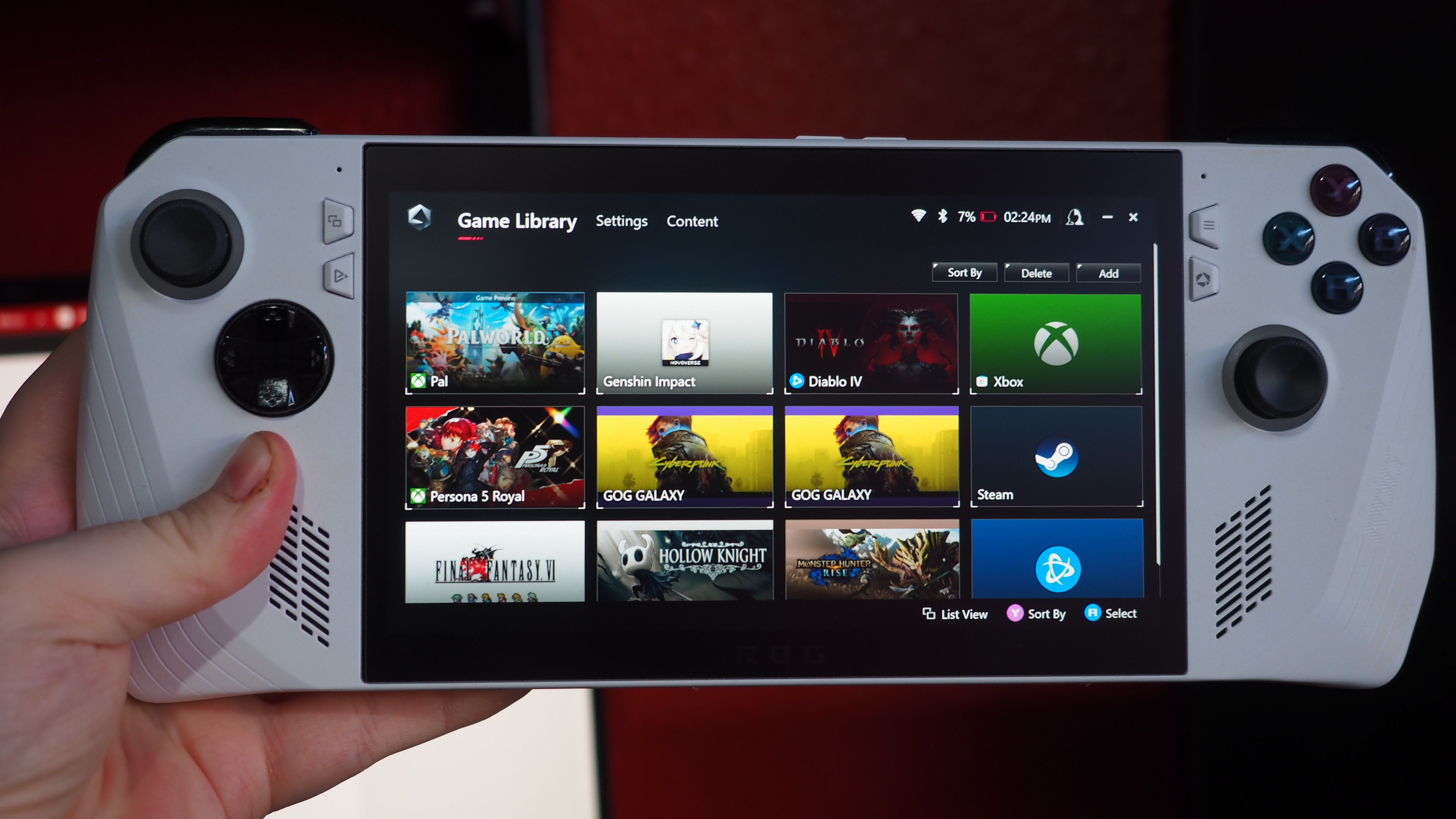
All the latest news, reviews, and guides for Windows and Xbox diehards.
You are now subscribed
Your newsletter sign-up was successful
Price: $699.99
Processor: AMD Ryzen Z1 Extreme Processor w/ Radeon RDNA 3 Architecture-based
RAM: 16GB
Storage: 512GB
Display: 7-inch 16:10 1080p LED touchscreen
Battery: 1 hr 39 mins - 3 hrs 3 mins
Size: 0.83 x 4.37 x 11.02 inches
Weight: 1.34 lbs. (0.6 kg)
It has been roughly six months since I got my hands on the ASUS ROG Ally, the firm's first handheld gaming PC powered by Windows 11.
For a time, ASUS had temporary exclusivity on AMD's Z1 Extreme chipset, giving them a bit of a head start in what is becoming one of the most exciting growing PC gaming categories in recent memory. MSI is launching its MSI Claw competitor with Intel chips, and Lenovo has released its Legion Go powered by the same Z1E in the ASUS ROG Ally. Then of course, there's Valve's incredible Steam Deck.
Each of these gaming handhelds have pros and cons, but today we're focusing entirely on the ASUS ROG Ally experience, as someone who regularly uses it for both Steam and Xbox ecosystem gaming.
For our original full ASUS ROG Ally review, head here. This is more of a long-term re-review for those interested in how it's stacking up over time. And honestly, it has exceeded all of my expectations.
Crushing (almost) everything I throw at it
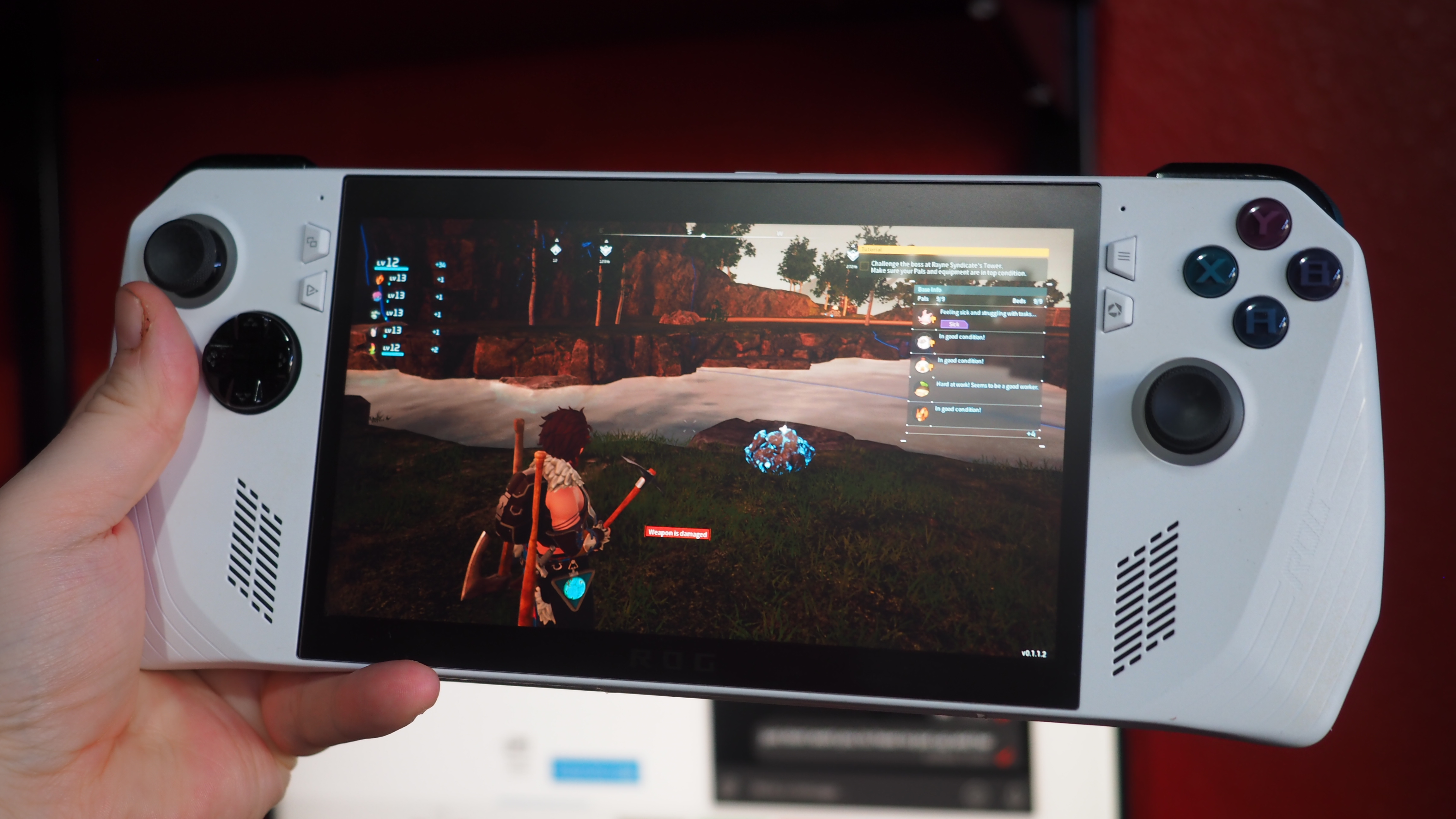
Above all else, we need to talk about the raw gaming experience, and this is where the ASUS ROG Ally really shines above all else.
I'm still mind-blown that this device is capable of delivering Xbox One S-like performance in a device as small and portable as this. The ASUS ROG Ally is noticeably more balanced to carry around than the more bulky Steam Deck or Lenovo Legion Go, with a genuinely luscious ergonomic design that just feels great in the hand. I will say that at times, it's a little too lush, with the triggers, buttons, and sticks being a tad too sensitive at times — especially if you're used to the more resistant activations on a standard Xbox controller. You will get used to it, though, and things like the dead zones on the sticks can be adjusted via the fairly capable Armory Crate software.
The sound experience is also grand. I've been quite surprised how loud this thing can get when using the regular speakers. It has ports and Bluetooth 5.1 for connecting up headphones too, which you may find yourself opting for for travel purposes. In my experience, these have worked great too with no issues. I regularly use my ASUS ROG Ally in airports travelling around, and Bluetooth never drops out or fails me, which is more than I can say for some of my laptops.
All the latest news, reviews, and guides for Windows and Xbox diehards.
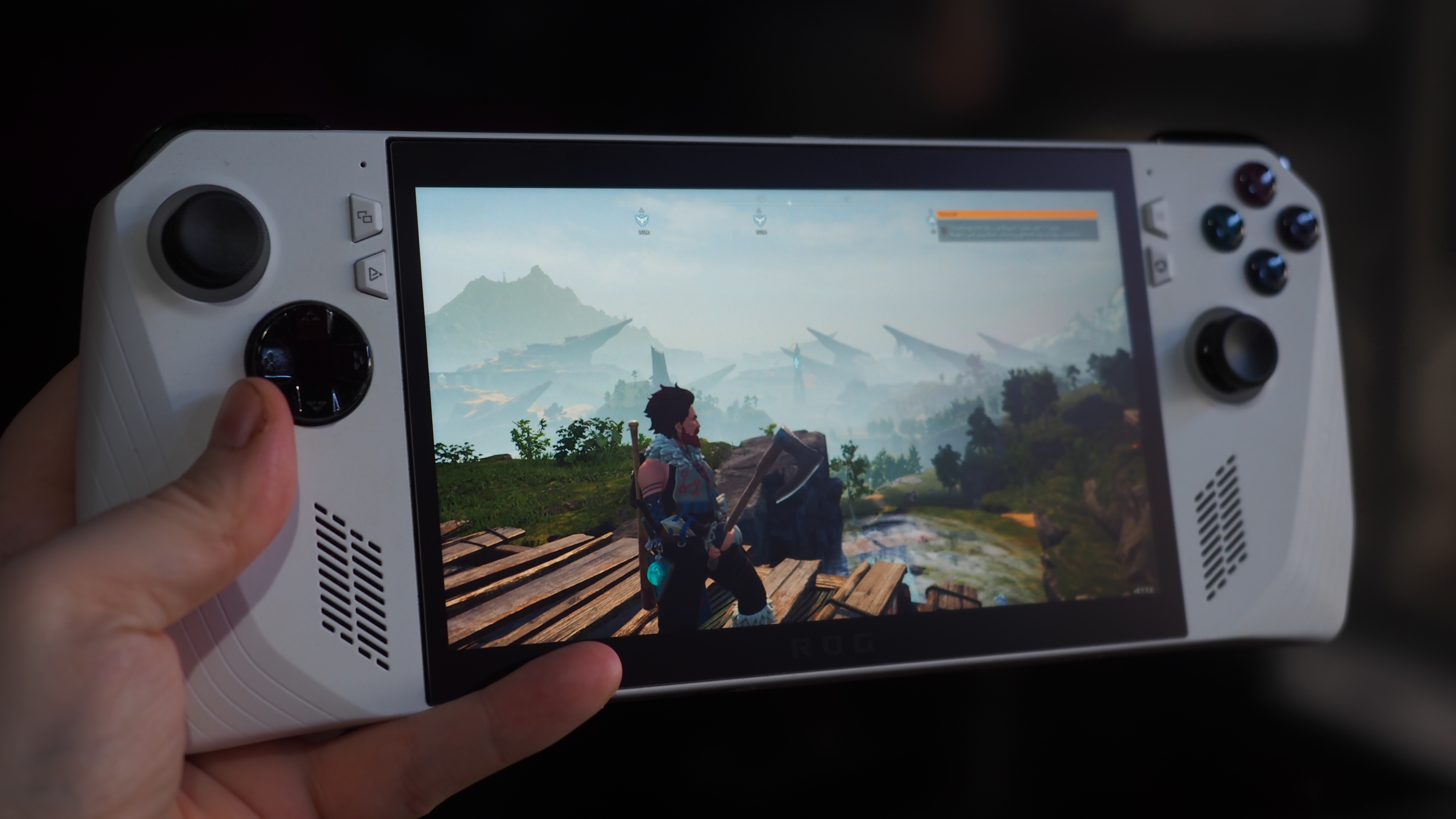
As for games, the ASUS ROG Ally remains as performant as the day I got it, even with some of the power tweaks ASUS has performed to offset certain issues (like "melting" microSD cards ... more on that in a minute).
You'll get almost PS4-like performance out of this device. Even photorealistic past-gen games like God of War, The Last of Us, Returnal, Cyberpunk 2077, The Witcher 3, Gears 5, all work incredibly well on the ASUS ROG Ally. In Turbo mode, with FSR tweaks and frame rate limiters you can easily get 720p 30 FPS even in the most graphically intensive titles, and push even further if they're particularly well-optimised. Even the most modern games like Diablo 4 work near flawlessly on the ROG Ally, and since it's a PC, you can often just tweak settings to get the type of experience you want. If you want Diablo 4 running at 60 FPS, you can compromise on shadows and pixel density to get there.
One of the ASUS ROG Ally's learning curves pertains to those aforementioned tweaks, though. And over time, ASUS has added features and improved their app experience to allow you to do just that.
Gradual improvements sweeten the deal
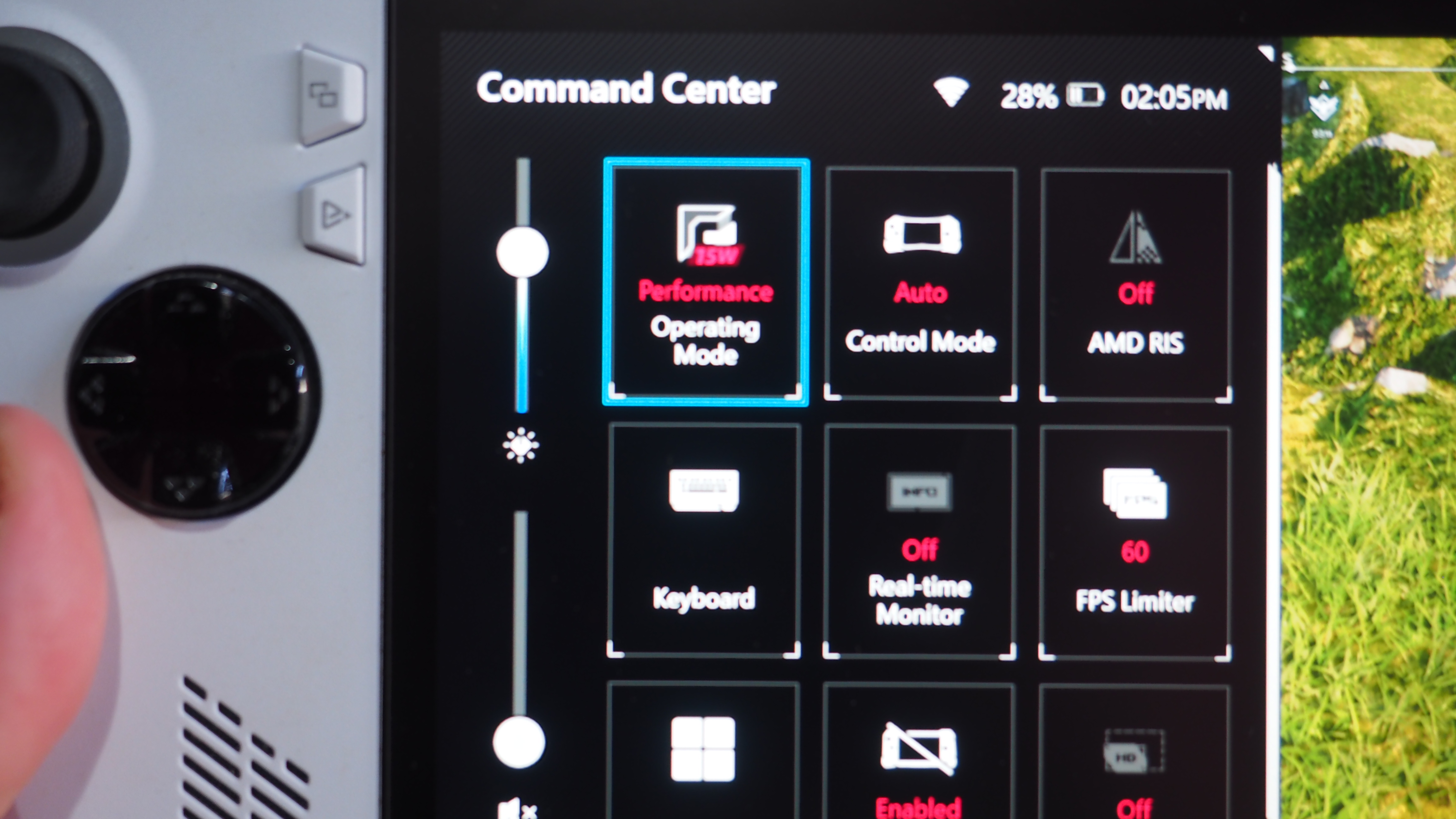
One of the biggest drawbacks (and ironically, benefits) of the ASUS ROG Ally is Windows itself. With Windows, you get literally tens of thousands of games and decades of back compatibility. You can run MS DOS games on this thing if you feel like it, and it will at least try to run anything from Steam or the Xbox PC app.
The learning curve comes in when you're trying to figure out what games to play in what types of scenarios. For example, if you're trying to run Final Fantasy 7 Remake, which the ASUS ROG Ally is quite capable of doing at 60 FPS on medium or higher visuals even, you're going to want to make sure the device is set to Turbo mode. Turbo ensures it's getting the full 25-30w power draw to process and represent those visuals. However, at 25w, you're looking at around 1 hour of battery life. If that.
So, in situations where you're prioritizing battery life, you may want to bump it down to 15w or even 10w. FF7 Remake will struggle to run at 10w, unable to reproduce frames fast enough to offer a smooth experience. However, 2D games will more often than not run completely fine at 10w. I play games like Vampire Survivors or Hollow Knight when I'm looking to maximize battery life, which runs at maybe around 3 hours. Perhaps I'll run stylized and cartoony games like Persona 5 Royal at 15w to get 1.5-2 hours of battery life, and if I'm going to play something more intensive, I'll just plug the thing in.
You can swap all sorts of power settings on the fly using the Armory Crate overlay, which is complete with a hardware button on the left. However, sometimes the FPS limiter doesn't work without rebooting the games, if it works at all. It's often better to just go into the game's settings directly to tweak those aspects of it. At different power curves, you'll often need to adjust games to accommodate.
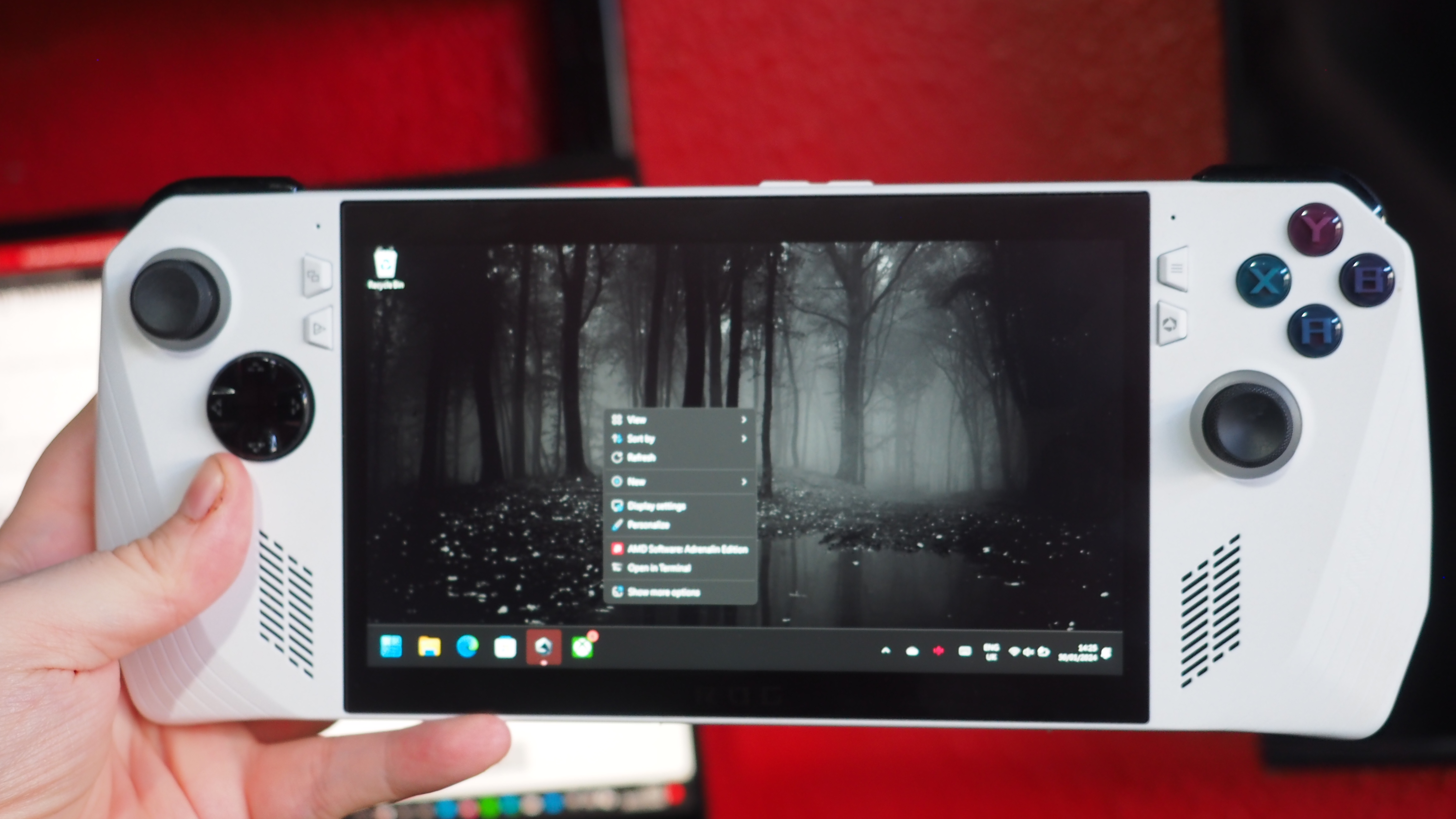
The Armory Crate, the ASUS app, and the drivers in general have improved a lot over the past six months. ASUS added lots of features based on user feedback to sweeten the deal, with smaller tweaks like being able to see your battery life from the overlay, to improvements on adjusting fan curves and the like. My favorite update was the ability to adjust the VRAM allocation from the Armory Crate, rather than having to dig through the BIOS. Some games simply need more VRAM, and setting it to 6GB seems to be a sweet spot for me and the types of games I play.
As noted, the ASUS ROG Ally did have some notorious drawbacks. The MicroSD card slot is ensconced precariously next to the external vents. This has led to MicroSD cards becoming warped and damaged by some, although I have yet to reproduce the issue with my own MicroSD card. ASUS adjusted the amount of heat produced by the device to try and compensate for this issue, but I wouldn't be surprised if we see the MicroSD card slot moved to the bottom of the device in future revisions, more akin to the Steam Deck in that regard. Also some of the other issues just pertain to Windows 11 itself. Windows is a pain to navigate and use in general on a touch screen, and Microsoft knows it. Microsoft has been tweaking the Xbox app for 7 to 8-inch displays in response, but things like settings menus, notification panels, and legacy tools like Control Panel are just a nightmare to navigate with touch. Some games also don't really like or support touch controls. Setting up Palworld and typing in invite codes and pass keys was a pain too, which is why I often keep a portable Bluetooth keyboard and trackpad combo handy for some situations.
But it's like I said, Microsoft knows the Windows 11 gaming experience is sub-par for these types of devices, and that's not necessarily on ASUS to fix. The Armory Crate itself is a great bridge overall, but it's a far cry from the polished, and "native" feeling experience of something like the Steam Deck or Nintendo Switch.
What does the future hold for ASUS ROG?
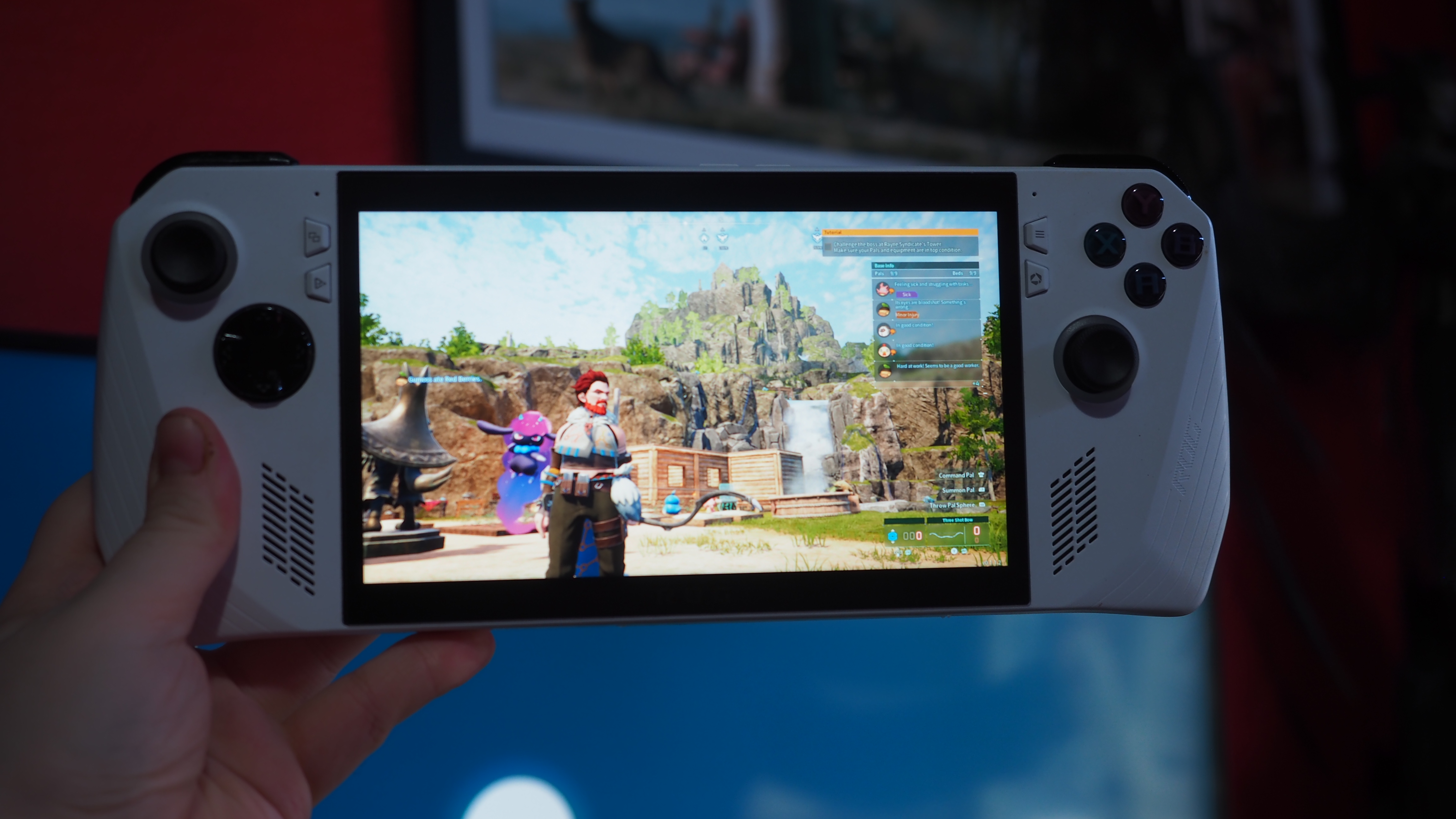
Rumors are already swirling of an ASUS ROG Ally 2 in the works, and it wouldn't be a surprise to see one in the coming years. While ASUS itself hasn't released figures, an analysis from last summer reckoned the firm had already sold through half a million units back in July 2023. Whether or not that is accurate, I have no idea, but the fact we're seeing MSI, Lenovo, and various others jump into the handheld fray suggests there's no stopping this train.
I'd love to see a future ASUS ROG Ally with boosted battery life, an OLED display, with improvements on Microsoft's end in tow to make it all feel a bit more native. I'd love a black variant, as someone with 99% black tech items, and a bit more resistance on the triggers, sticks, and buttons for those accidental clicks and presses. I do find myself missing the trackpads on the Steam Deck from time to time for those situations where games simply don't support a joystick for certain menus or pre-game launchers. An improved touch keyboard and game launch experience would be a welcomed improvement on Microsoft's end too.
I will say that without a shadow of a doubt that my ASUS ROG Ally defied all my early scepticism, and now sits among my favorite gaming devices of all time. I can't recommend this thing enough.

Jez Corden is the Executive Editor at Windows Central, focusing primarily on all things Xbox and gaming. Jez is known for breaking exclusive news and analysis as relates to the Microsoft ecosystem — while being powered by tea. Follow on X.com/JezCorden and tune in to the XB2 Podcast, all about, you guessed it, Xbox!
